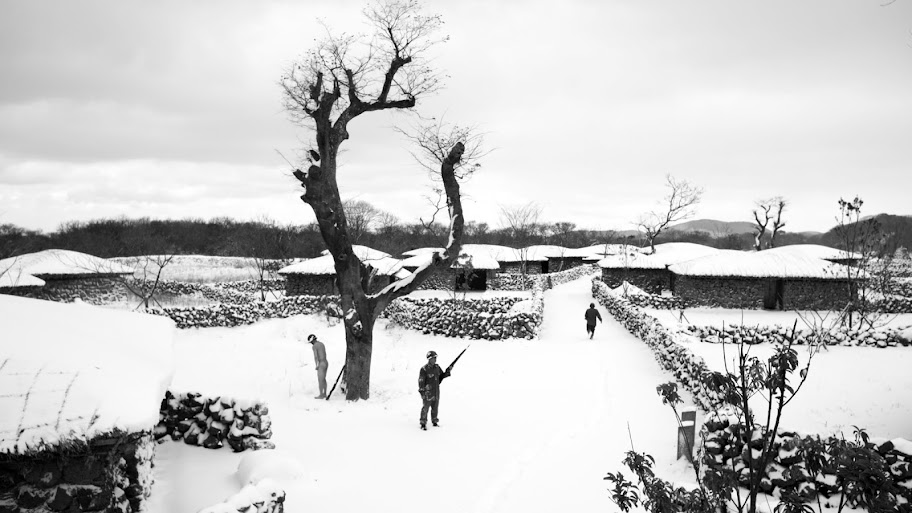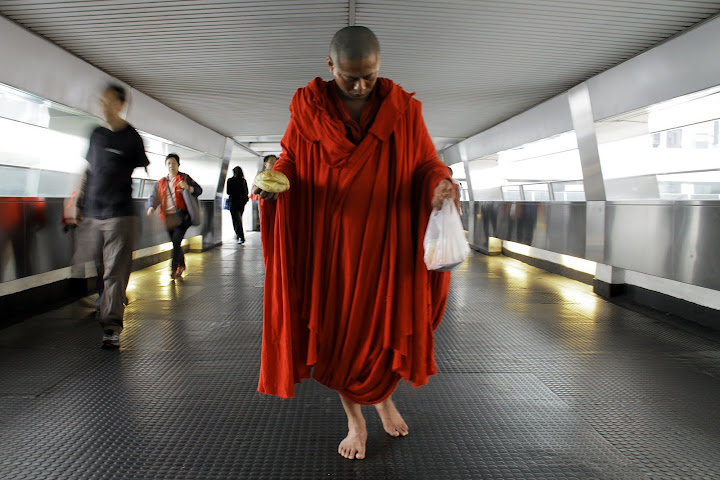|
After thirty years, San
Francisco International Asian American Film Festival
(SFIAAFF) has a new identity. It
becomes CAAMFest. The new
name effectively promotes the institution behind the
festival—Center for Asian America
Media (CAAM).
The festival also has a new tagline: "Film. Music. Food."

For thirty years, San Francisco
International Asian American Film Festival has been
the largest showcase in North America for Asian American
independent filmmaking and current Asian cinema.
However, starting from last year's SFIAAFF 30,
the festival's programming has shifted to a new
direction to embrace the emerging new media. One
noticeable change is the reduction of the presence of
contemporary Asian cinema as well as the total number of
films in the programming, and the increase of CAAM's
in-house productions.
This year, while continuing this trend, the festival
makes even more drastic changes, besides giving itself a
new name. The festival eliminates the San Jose location
altogether and runs the entire ten days, March 14-24, in
San Francisco and Berkeley (which I think it's a smart
move). It also adds quite a few musical programs (does
SXSW come
to your mind?) and live-cooking events to the
festival. And, for the first time, the festival presents
a 3-D film—the fantastic "The
Monkey King: Uproar in the Heaven"
(大闹天宫 | China 2011 | in
Chinese | 92 min.).
It's evident that the festival has evolved itself to be
a primary platform for CAAM's productions and
interactive programs that involve music and food. The
changing of the festival's name seems inevitable and actually
quite fitting to reflect the festival's new identity.
I love film, music, as well as food. However, I would
like to focus on film aspect of the festival here. This
year, the film's portion of the festival is downsizing
to 21 narrative features and 19 documentary features,
and many of these documentaries last less than an hour,
perhaps they are tailored for PBS.
One prominent focus at this year's festival is
China. Quite a few films tell heartbreaking stories
about the lives of ordinary Chinese people who are left
behind by the economic boom. These films bring the
widening chasm between rich and poor and escalating
political unrest in China to light, and understandably,
none of them are upbeat.
Here are my picks in this year's program. As
always, each film title is linked to the festival
program, where you can find more details about the
film including showtime and venue information. Each
film's still image is linked to a film's official Web
site if it's available.
The CAAMFest 2013 takes
place March 14-24, 2013 in San Francisco at Sundance
Kabuki, SF
Film Society Cinema, Castro Theater, and
Great Star Theater,
and in Berkeley at Pacific Film
Archive, and other venues
around the Bay Area.
- Linsanity (USA 2013 | 88 min.)
In February 2012, Chinese-American
NBA
star Jeremy
Lin's (林書豪) magical
performances generated a storm
called "Linsanity"
that swept through the entire nation and around
the world. Bay area
filmmaker Evan
Jackson Leong's exhilarating documentary
"Linsanity"
brings back that excitement to the big screen. With
unprecedented access, the film eloquently depicts
the high points and low bottoms in Jeremy Lin's
professional basketball career. It sharply
criticizes the racial and cultural bias toward
Asians in professional basketball. The film
presents us a talented, humble, charismatic,
driven, religious, and lovable Jeremy Lin who is
the center of a "Linsanity" storm.
With Jeremy Lin's incredible energy and
irresistible charm, this uplifting and inspiring
documentary will surely bring down the house at
the Castro Theater when the film opens the
festival on March 14.
Get ready for Linsanity, round two.

- Jiseul
(지슬 | South Korea 2012 | in
Korean | 108 min.)
Beautifully shot in black and white, South Korean
director O
Meul's (오멸)
award-winning
war drama "Jiseul"
tells an unforgettable story
about Jeju
Massacre in 1948.
During the Korean War, the US military orders the
South Korea ally to treat anybody they find in
Jeju as a communist from the North and execute the
person on the spot. Enduring the cold and hunger,
120 villages hide in a cave hoping to escape
the soldiers' slaughter. The film masterfully unfolds
their incredible and shocking ordeal with its
elegant lenses.
This sometimes hard-to-watch film reminds us the
cruelty of war that destroys both humanity and
lives. It is one of the best films at this year's
festival.

- Beautiful
2012 (China/South
Korea/Malaysia/Hong Kong 2012 | in
Chinese/Korean | 90 min.)
Serving as China's Youtube,
Youku teams up
with Hong Kong
International Film Festival Society and
assembles a short program from four acclaimed
Asian directors.
South Korean director Kim
Tae-yong's (김태용) quirky
"You Are More
Than Beautiful" tells a simple story
about a young man's visit to his dying father, along
with a hired young woman pretending to be his
fiancée. The unexpected turn of the plot is both
funny and touching.
Malaysia director Tsai
Ming-liang's
meditating "Walker"
(行者) casts Tsai's career-long
collaborator Lee
Kang-sheng (李康生) as a
bare foot monk walking around Hong Kong in his red
robe. Contrary to the non-stop fast moving
surroundings, the monk's movement is almost frozen
in time and in motion. It's strikingly beautiful
yet provokingly intriguing.
Chinese director Gu
Chang-wei's (顾长卫)
philosophical "Long
Tou" (龙头) follows a
candid discussion among a writer, an artist, and a
young woman about life, death, and reproduction,
while Gu's never resting camera peeks out the
window to capture mesmerizing images of a
scavenger.
Hong Kong director Ann
Hui's (許鞍華)
sensible "My
Way" (我的路) tells
a story about a middle-aged transgender woman,
terrifically played by Francis
Ng (吳鎮宇), who lives in
Hong Kong and decides to undergo a sex change
operation to pursue her true
happiness. Unfortunately, this segment seems to be
overshadowed by other pieces in this short
program.

- When
the Bough Breaks
(危巢 | China 2011 | in
Chinese | 147 min.)
Despite the glamorous outlook of the booming
economy in China, millions migrant workers
struggle to survive, while clinging on their hope
for a better future. In a fly-on-the-wall
style, Chinese director Ji
Dan's (季丹) extraordinary
documentary "When
the Bough Breaks" tells a poignant
story of such a family living in a slum in the
outskirts of Beijing.
Over the period of several months, the film
follows a migrant family from Anhui Province,
living in a temporary self-made (surely looked
illegal) structure inside piles of garbage with
new high-rise apartment buildings in the not
far away background. The father collects garbage
to make a living and drinks too much sometimes. He
and his wife, and their two daughters Xia and
Ling, all live in this tiny garbage hole which
they call home, while supporting their son Gang to
attend school.
Facing a controlling and uneducated father, even
at a very young age, the stubborn elder sister Xia
takes on the responsibility and is determined to
send Gang to pass the exams for high school and
college. She firmly believes in education and sees
Gang's attending college is the only way to turn
their lives around. The sisters make the ultimate
sacrifice and take on the heavy burden on their
fragile shoulders. Xia and Ling both quit school
in order to save money for Gang, but the
skyrocketing cost for Gang's education is still
out of reach for the family. What to do?
It's remarkable how director Ji Dan is able to
intimately capture the daily life of this family
and their complex emotions. Although the family's
living condition and the challenges they face are
tough and difficult to watch, the filmmaker's
compassion and empathy can be felt throughout the
film. We become deeply attached to the siblings
and concerned about their future.

- The
Mosuo Sisters (摩梭姊妹 | USA/China 2012
| in Chinese/Mosuo | 80 min.)
In Southern China, Mosuo
(摩梭) is an ethnic minority which
uniquely practices a matriarchal tradition
called "walking
marriage." But sisters Juma and Latso, the
protagonists of director Marlo
Poras 's captivating
documentary "The
Mosuo Sisters," try to break away from
this tradition and have the ambition to live a new
modern life—They leave their family's farm
and sing in Beijing's night clubs.
But the recent global economic downturn crushes
their dreams. They lose their jobs in Beijing and
reluctantly return to their family farm in the
foothills of the Himalayas. Determined to better
support the family, Juma leaves home again for Chengdu
to sing in night clubs, while Latso has to give up
her education and work on the family's farm. While
they take on separate paths for their future, the
family tie continues to bond the sisters
together.
In this fascinating documentary, we
experience the impact of rapid changes in China
from these two sisters' dramatic ups and downs in
their daily life.

- Touch
of the Light
(逆光飛翔 |
Taiwan/Hong Kong/China 2012 | in Chinese | 110 min.)
Twenty six years ago, Huang Yu-Siang
(黃裕翔) was born blind in a
rural area of Taiwan. But that doesn't stop him
from developing his extraordinary talent and
becoming an outstanding pianist. After turning
Huang's story into an award-winning short
film "The
End of the Tunnel" (天黑),
two years later, with the support
from Wong Kar Wai
(王家衛), director Chang
Rong-ji (張榮吉) expands the
story into this award-winning feature
debut "Touch
of the Light." The film is selected as
Taiwan's submission for this
year's Best
Foreign Language Oscar.
In the film, Huang
Yu-Siang plays himself as a blind pianist. He
meets a beautiful girl Jie (Sandrine
Pinna) who sells cold drinks while dreaming to
become a dancer. They turn to each other for support
and inspiration in pursuing their dreams.
This is one of the films I have yet to see at the
festival and I am looking forward to.

|






